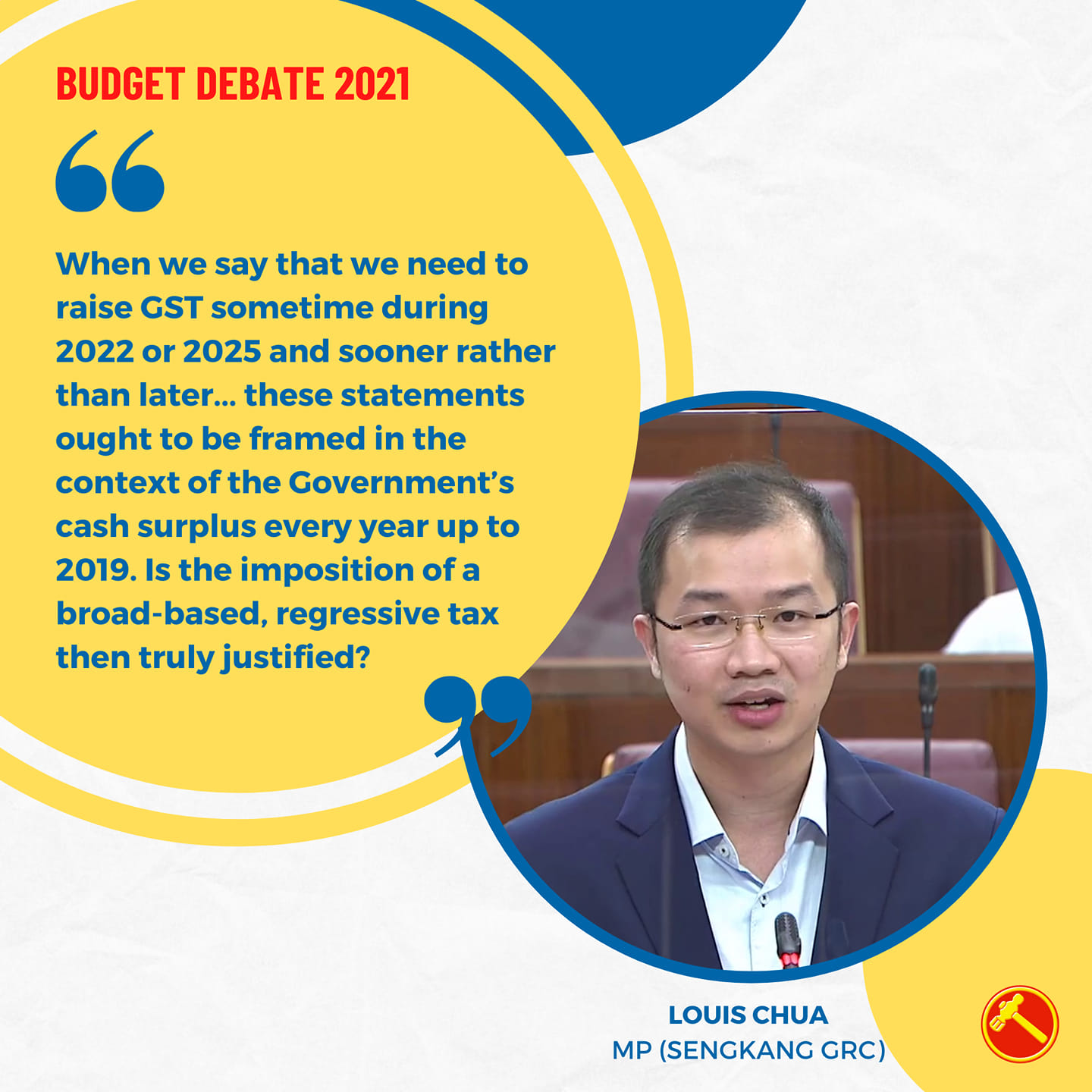Singapore — On the first day of the Budget Debate on Wednesday (Feb 24), Workers’ Party MP Louis Chua (Sengkang GRC) questioned the proposed Goods and Services Tax (GST) increase sometime between 2022 and 2025.
The planned hike should be viewed alongside the Government’s yearly cash surplus before the pandemic struck, he said.

Given the worldwide economic fallout from the Covid-19 pandemic, Mr Chua called the tax a “broad-based, regressive” one.
“When we say that we need to raise GST sometime during 2022 or 2025 and sooner rather than later… these statements ought to be framed in the context of the Government’s cash surplus every year up to 2019. Is the imposition of a broad-based, regressive tax then truly justified?”
“We must caution against being overzealous in strengthening our revenue position through multiple pathways, such as the impending GST hike, especially amid the macroeconomic uncertainties of today,” he added.
People’s Action Party backbencher Shawn Huang (Jurong GRC) responded to Mr Chua’s characterisation of the GST as regressive. While that may be the case, the GST is only one part of the country’s tax and benefit system, which in its totality is progressive, he said.
“Is GST a regressive tax? Yes, it is. Standalone, only without intervention. GST forms part of Singapore’s overall tax and benefit system, which is progressive,” Mr Huang said.
He added that whenever the GST is raised, “the lower- and middle-income groups will be buffered for 10 and five years respectively”.
Furthermore, the Government absorbs increases in healthcare and education, he added, in reference to the S$6 billion Assurance Package to be implemented alongside the GST increase.
Mr Chua answered Mr Huang by saying that the benefits of the Assurance Package would only go so far, but the “reality of the higher GST” would affect households for life.
He later suggested a one-off wealth tax, if a tax increase is indeed necessary.
Earlier, MP Foo Mee Har (PAP-West Coast GRC) had also suggested a one-off wealth tax as an economically efficient option as part of the pandemic response, citing the example of the United Kingdom’s 1997 “windfall tax.”
Mr Chua’s speech can be viewed here.
/TISG
Read also: Most analysts say GST hike could take effect in 2023

